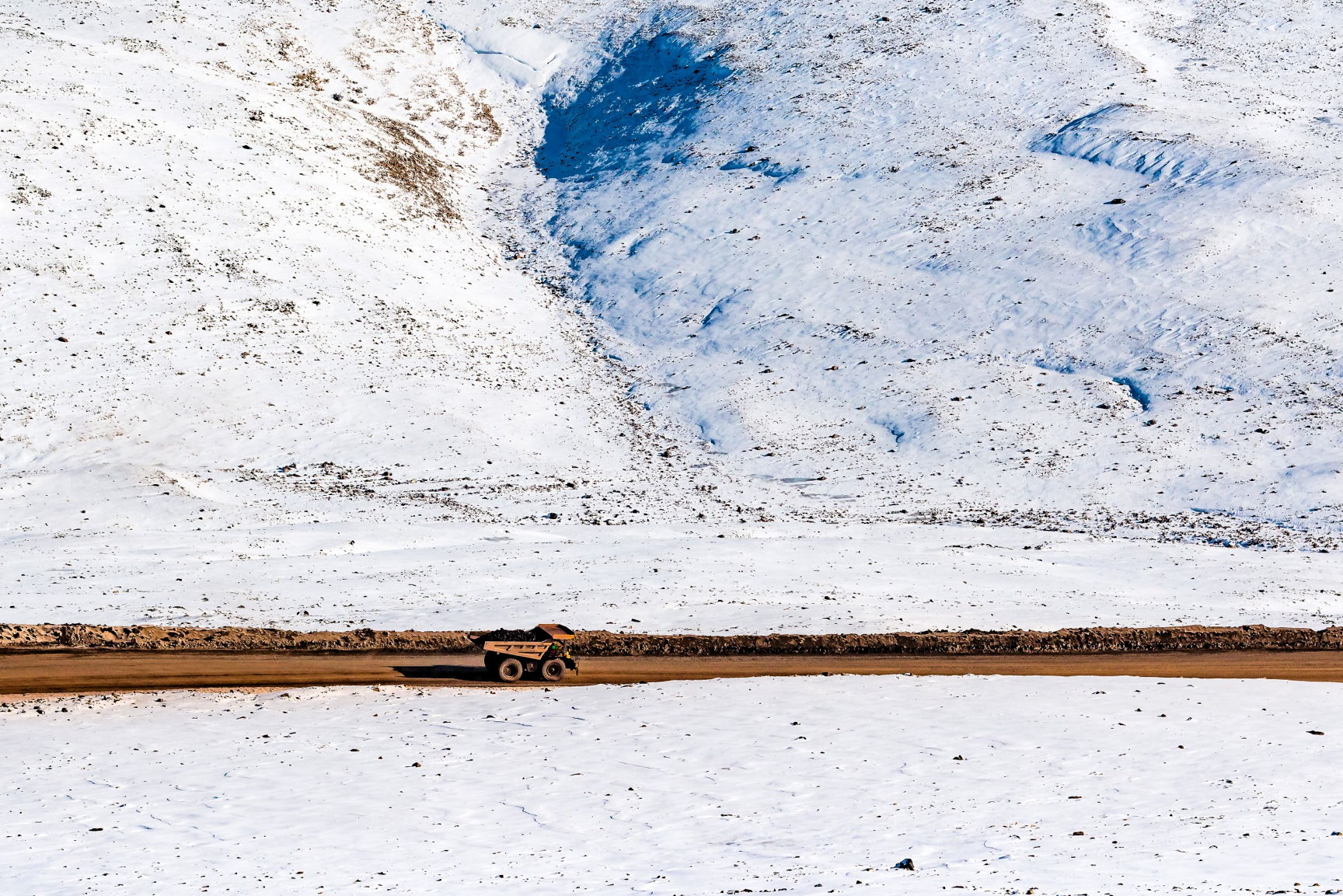Inuit regional group says it won’t back Baffinland’s Mary River mine expansion
‘Inuit did not participate in the development of the proposal,’ says QIA President P.J. Akeeagok.

The Qikiqtani Inuit Association says it will not support Baffinland Iron Mines Corp.’s proposal to expand its Mary River iron mine.
The association’s board of directors made the announcement last Friday evening, after passing a resolution during a closed-door session earlier that day.
The board discussed the expansion’s impacts on wildlife, including caribou, seal and narwhal, as well as dust produced by mining activities, according to a news release from the association.
The proposed expansion, dubbed Phase 2, would increase the mine’s production from six million to 12 million tonnes of ore per year, include the construction of a 110-kilometer railway from Mary River to Milne Inlet, and use up to 176 transits by ore-carrying vessels to take its product to market.
Board members also talked about what they describe as Baffinland’s limited incorporation of Inuit traditional knowledge into the company’s expansion plan, and the absence of a jointly developed adaptive management plan to mitigate the project’s impacts.
“Inuit did not participate in the development of the proposal, and key information about project impacts remain unclear,” QIA president P.J. Akeeagok said in a statement.
At the same time, the board “remains open to resource development” and would welcome proposals from Baffinland “that prioritize Inuit involvement from the beginning,” the news release states.
In a news release the next day, Baffinland CEO Brian Penney said the company remains committed to making the proposed expansion work.
“We will continue our community outreach and seek to meet the QIA and others as soon as practicable to discuss their concerns in order to find a mutually agreeable way forward,” he said.
The Qikiqtani Inuit Association, which represents Inuit in the Qikiqtani or Baffin region and which has described itself as Baffinland’s partner, owns most of the land the Mary River project sits on and receives millions of dollars a year in commercial lease payments and royalties through an Inuit impact and benefits agreement.
By the end of the 2019-20 fiscal year, the association’s legacy fund held $61.7 million, most of which consists of payments from Baffinland.
That year, QIA distributed $1.4 million from the legacy fund’s earnings throughout the Qikiqtani region, including $500,000 for a daycare subsidy and $594,410 for cultural activities. The legacy fund was established in 2016 to invest money the association receives through activities, including the benefit agreement with Baffinland, other mining activity, and sand and gravel projects on Inuit-owned lands.
In addition to the impact and benefits agreement, the organization negotiated another agreement last July, aimed at making the expansion proposal more acceptable to the people of north Baffin.
Called the Inuit Certainty Agreement, the deal delivers direct benefits to area communities and provides for Inuit oversight of the expansion project.
“It puts Inuit in the driver’s seat,” Akeeagok said of the certainty agreement this past July.
Despite this agreement, Inuit support for the expansion remains less than certain.
On Feb. 9, a group of protesters from Arctic Bay and Pond Inlet blockaded the Mary River tote road and airstrip. In response to the protest, Akeeagok said the expansion proposal “has not been adequately developed.”
The blockade ended one week later, as Baffinland sought an injunction in Nunavut court, and QIA leadership committed to meeting with the protesters.
At a public hearing before the Nunavut Impact Review Board last month, Inuit representatives from north Baffin — especially from Pond Inlet — asked skeptical questions about the project and some expressed outright opposition.
Throughout the review board’s assessment process, QIA has refrained from endorsing the expansion project, but had never issued an outright condemnation either.
The public hearing is set to resume April 12 and run until April 21.